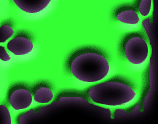|
|
|
Elie Wiesel
|
|
Elie Wiesel was born on September
30, 1928 in a small town of Sighet, where people of many different languages and religions lived. Elie grew up in a small Jewish community of Sighet. Although
the family spoke Yiddish, they read newspapers in German, Romanian, or Hungarian. Elie
began religious studies in Hebrew almost right after being able to speak.
|
 |
 |
|
The first years of World
War II left Sighet untouched by the Nazis, but later in 1944, the Nazi Germans arrived to capture them and deport them to
concentration camps in Poland. Elie was immediately separated from his mother
and two sisters in Auschitz. He remained with his father for the next year, being
worked to death, beaten, and starved. During the last years of the war Wiesel’s
father died of starvation, exhaustion, and exposure.
|
 |
|
|
|
| Elie at a concentration camp in Buchenwald. |
|
 |
|
After the war, Elie became an orphan in Paris, France, where
he learned for the first time that his two older sisters had survived. Wiesel
mastered the French language and studied philosophy at the Sorbonne. He became
a journalist for both France and Israel, where he wrote his 127-page French book La Nuit (Night). In 1978, President Jimmy Carter appointed Elie Chairman of the United States Holocaust Memorial Council. In 1985 he was awarded the Congressional Medal of Freedom, and in 1986, the Nobel
Prize of Peace. Elie now lives with his wife and son, Elisha, in New York.
|
 |
|
|
 |

|
 |
|
|
|

